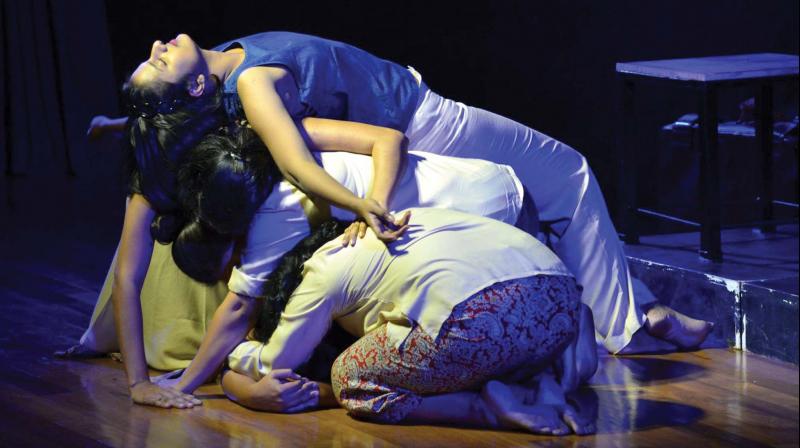Hurt locker, in all honesty

The silence is deafening when it comes to child sexual abuse and a group of Bengaluru women are here to pierce through it. Called Positively Shameless, they hope to start a dialogue through devised plays about child sex abuse and how the traumatised survivors have since carried the shame and anger on their shoulders since they were tiny. After several sold-out shows, they are back to the Rangasthala Auditorium on February 3 and 4 for another round.
A trained drama therapist and a city-based counselling psychologist, Maitri Gopalakrishna has counselled several women who have come to her with these blocks and used drama as a tool for therapy.
“Five of them felt like they were ready to share their journey on stage and had time to string this performance together,” says Shabari Rao, the co-director of the play. “Although these are personal stories, it isn’t autobiographical theatre and draws social discourse around them, making it relevant for everybody,” she explains, having worked on it since April 2016, before putting up their first show in September last year. Now, they are set to take their performance to Hyderabad too.
This performance is a playful, dramatic act of resistance and revelation by five adult women who challenge the shame and silence that often surrounds survivors.
As a 60-minute devised piece, it has no set format, but it deals with several powerful and important themes: difficult or conflicted relationships with parents, women’s relationships with their own bodies – shame and vulnerability, relationship with sex and the notion about disclosure itself – what happens when you tell someone about it?
“We didn’t just want to look at it as an act of abuse, but as stemming from a bigger social problem – gender, patriarchy and how we are told to obey our elders, for instance,” adds Shabari.
Why is it called Positively Shameless, one might wonder. Believe it or not, the idea of shame is a huge part of our existence. “It keeps us from living our lives fully. Almost inhibits us. How would it be to be shameless positively?” asks Maitri. “Like the play itself, the name too was part of the collaborative process. It’s a play on words and we are hoping to reclaim ‘shamelessness’ as a positive way of being,” she says.

